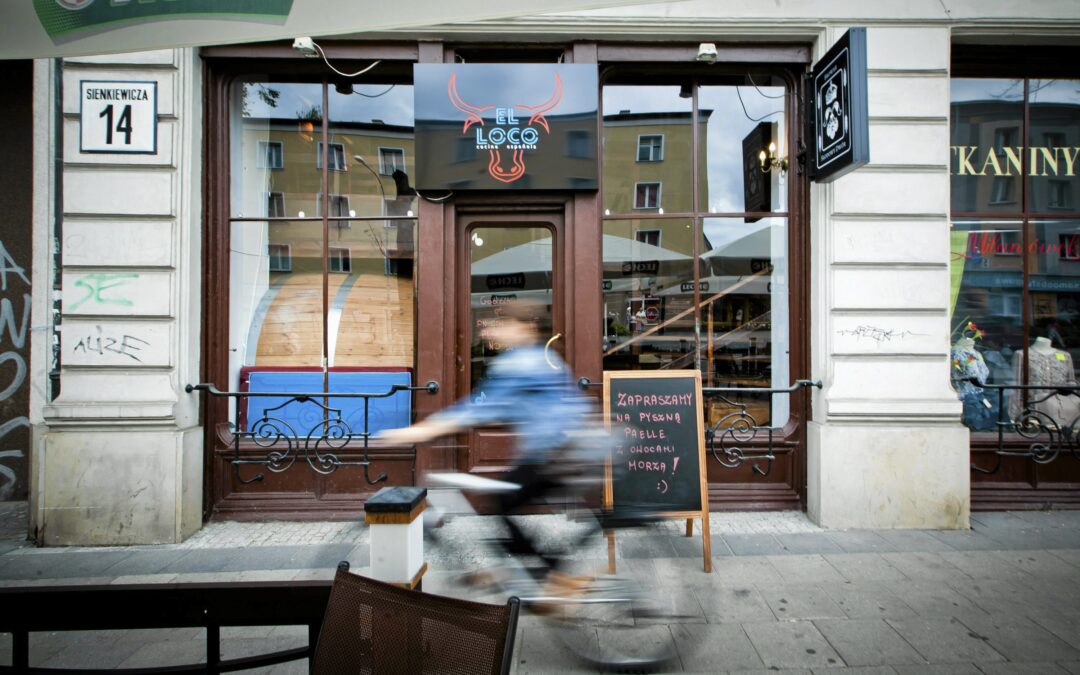By Veronica Snoj
Poland has long been known primarily as a country of emigration, even more so after it joined the European Union in 2004, when hundreds of thousands of Poles left in search of work opportunities in wealthier western EU member states.
However, Poland’s economy has been constantly growing since that time, even achieving the fastest growth in Europe after the financial crisis. This trend is reflected in the country’s unemployment rate, which has been falling steadily.
This January, it reached a low of 2.9%, putting Poland in second place across all EU members, in clear contrast to the soaring unemployment recorded in some countries where Poles have traditionally sought work, such as Spain and Italy.
As a result, Poland has in the last few years become a country of immigration. Most of the new arrivals have come from the east, with a quarter of a million citizens of Ukraine and Belarus currently officially registered as permanent and temporary residents in Poland. The true figure is even higher, with the Polish central bank estimating that as many as 900,000 Ukrainians alone are in Poland on average at any one time.
Yet there has also been a significant, but much less remarked upon, rise in migration from the west. Around 67,000 citizens of other EU countries are currently registered as residents of Poland, up from about 24,000 a decade ago.
“The vast majority of EU citizens are coming from Portugal, Spain, and Italy, as they have more opportunities to find jobs in big companies that offer stable employment,” says Aleksandra Topolewska, a Recruitment Projects Manager at ManpowerGroup.
Statistics show that most of the newcomers are in their twenties and thirties. Although motives for coming to Poland vary, Topolewska tells us that most EU citizens initially come to spend part of their university programme in the country or simply by chance. They find that they like the city they are studying in or Poland in general, and decide to stay.
That was the case with Rodrigo Gutiérrez Barrio, who was well aware that it would be tough to find a job in Spain when he was about to graduate in architecture in 2016. Then one day, a friend invited him to Poland as her company was looking for new hires. He didn’t think twice: he packed his belongings and moved to Łódź, where he still lives today, working for a Swiss corporation.
“People don’t understand what a person from Spain, which can be seen as a very nice country, would like to do in Poland,” he said. “We come because we have to earn our living somehow. Spain is a very nice country indeed, but only if you have the means to enjoy it.”
Topolewska notes that the growing demand for citizens of other EU countries in Poland in the last few years has to do with companies setting up business service centres in the country. Speakers of foreign languages are in high demand in such places.
Last year, there were already more than 1,000 business service centres in Poland, employing more than 300,000 people. Recruitment specialist Hays Poland notes that English, German, French, Italian and Spanish are among the languages most in demand.
“Mostly the roles are in accounting, customer service, IT or research and development, while companies are also expanding their marketing teams for supporting other regions,” says Topolewska.
“In many companies, you don’t need to have specific experience,” she adds. “If you have the language skills, they can teach you the job, it’s always faster to teach the job than to teach someone to speak a language fluently.”
“Here, they look more for your skills than for your degrees. In Italy, it’s very difficult to find the job I’m doing here without any kind of university title,” confirms Federico Dessi.
In Sardinia, Dessi used to work as a waiter. He discovered Poland for the first time thanks to a European volunteering project which took him to Białystok in the north east of the country.
When he decided to leave Italy in search for work, he chose to return to Poland and to find an office job rather than going to the UK. There, he says, he would most probably have ended up working in restaurants. In Kraków, he found a job as a content analyst with Italian in two weeks.
“I only hold a bachelor’s degree in geography, not even a master’s degree, but still I was able to find a job because I’m able to speak English and French and know more or less how to use a computer,” says Alice Périer, who moved to Warsaw from France nearly two years ago to participate in a volunteering project.
She has been working in the Polish capital as a data analyst since last summer. “It is easier to find work here that can lead to a good life, compared to France.”
Dessi says that living and working in Krakow since 2016 has not only given him the luxury to be able to afford to pay for an apartment and his free-time activities, such as horse riding and painting, but also offers plenty of professional opportunities.
Although the immigrants we spoke to all feel comfortable in the cities they live in and have rarely felt unwanted in the country, they still encounter situations they find difficult to comprehend or adapt to.
“For me, the toughest thing is the lack of light in winter,” says Gutiérrez Barrio. “The first three months of the year usually pass quickly as I go home for a couple of weeks around Christmas, but then, in February and March, I notice I feel more down.”
He also misses smiles on people’s faces. “I know that relationships are very sincere when you get to know them closer. Still, if I were able to give a course on courtesy smiling, I’d give it to everyone.”
Dessi, meanwhile, is puzzled by the selective stereotype he has encountered about Italians coming to Poland to “steal” Polish girls. “I was drinking beer with a Pole who said, ‘you’re my friend, you’re alright, but other Italians come over here to steal our wives’. How could he say something like that if I’m Italian myself?”
The Gdańsk-based Immigrant Support Centre (Centrum Wsparcia Imigrantów i Imigrantek), an organisation which offers legal, anti-discrimination and integration support to immigrants, say that EU citizens represent a very small percentage of the immigrants who turn to them – only about 15-20 out of the more than 1,000 they help in a year.
“I think it’s more about looking foreign than being a foreigner,” says Gutiérrez Barrio, who mentions that some of his friends from Spain and Latin America with darker skin have experienced being pointed out as foreigners. “It makes sense to me – a historically homogeneous country has suddenly started to receive so many foreigners in the last years. They haven’t got used to it yet.”
“Maybe there were times when I was meant to feel unwelcome but I simply didn’t understand what they were saying,” he adds, laughing, addressing an obstacle they all mention: the Polish language.
A lot of companies provide language courses, including Polish for foreigners as an additional bonus, says Topolewska. Both Périer and Gutiérrez Barrio mention that they get support from their companies to learn the language.
But as they all work in international environments, they are not required to learn Polish, and living in larger cities they get by with English. They also admit to meeting up more with other foreigners than with the locals.
“When I moved to Poland, I couldn’t believe that people who had been living here for two or three years still didn’t speak Polish. In the end, the same has happened to me,” Gutiérrez Barrio tells us. “In Spain, anyone would expect a foreigner to learn Spanish.”
At Varia, a Polish language centre in Krakow, I am told that it usually takes students two to three years to learn to speak Polish fluently.
Not knowing Polish, however, sometimes leads to uncomfortable moments, such as finding visits to the cinema less enjoyable as they have to watch the movies with subtitles they don’t understand. More recently, with the COVID-19 pandemic, they have found themselves having to Google-translate important announcements.
Most of Varia’s students who start the course at A1 level (absolute beginner) continue studying Polish at more advanced levels. However, only about 30% of them reach the third stage, B1. They often quit studying either because they are satisfied with their level of the language or because they leave the country.
The Immigrant Support Centre organises several Polish language courses for foreigners per year, where only five to eight participants out of hundred come from EU countries. “Those people in a relationship or married to a Polish citizen know Polish better, but of course it’s not a rule,” they say.
Although all three of the western European immigrants we spoke to say they are happy in Poland, they headed to the country with the plan of staying for a couple of months, years, and being open to leaving if a new opportunity shows up. They have all also been on various youth exchanges, either as students or as volunteers, and would like to experience living in several countries.
Topolewska, however, notes that many EU citizens eventually decide to change jobs, but within the country, as they begin to settle down and stabilise their private lives.
These words resonate with what the three immigrants we spoke to have to say. None of them would dream of moving to any other city in Poland from the one they live in at present, be it Warsaw, Łódź, or Kraków. These cities have become home, where they lead their professional as well as their social lives.
Main image credit: Marcin Onufryjuk / Agencja Gazeta





















